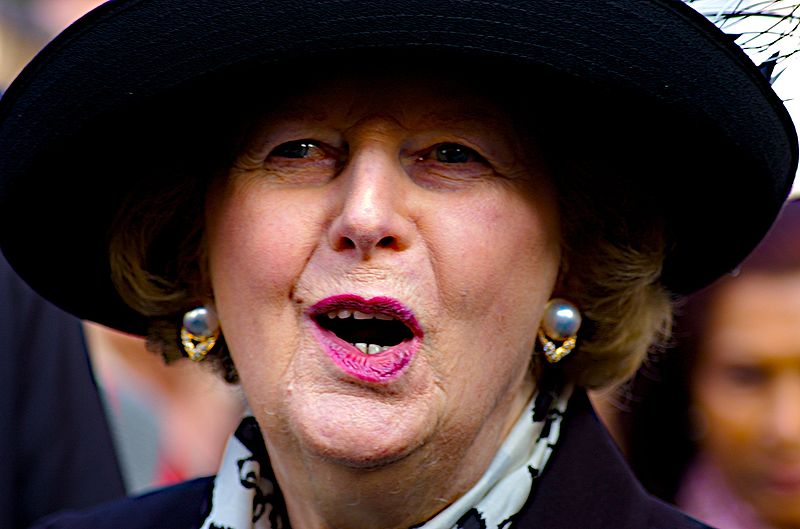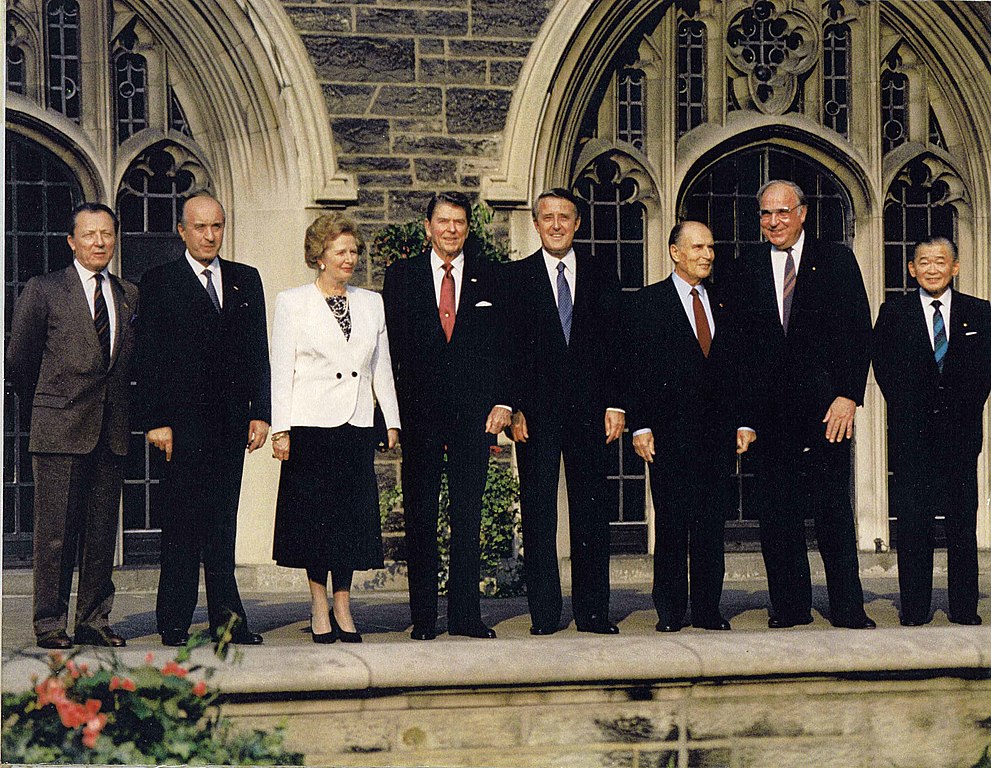
Photo by
Top 10 Sensational Facts about Margaret Thatcher.
She was the longest-serving British Prime Minister of the 20th century and is the only woman to have held the office
Margaret Thatcher (1925-2013), the United Kingdom’s first female prime minister, served from 1979 until 1990 and the Leader of the Conservative Party from 1975 to 1990.
She is an essential and active historical agent that changed Britain economically by leading them out of the 1973 depression.
During her time in office, she reduced the influence of trade unions, privatized certain industries, scaled back public benefits and changed the terms of political debate.
PM Thatcher transformed the lives of many. She was a powerful influencer during her time.
Thatcher made notable contributions to the history, arts and culture of Britain. Here’s to more facts about Margret Thatcher.
1. Margret Thatcher Lost her first 2 Stabs at a Parliamentary Seat.

Photo by Steve Punter –
It was in the Kent town of Dartford that a young grocer’s daughter from the East Midlands cut her political teeth.
Margaret Roberts, soon to become Thatcher, twice lost the general election in the safe Labour seat in 1950 and 1951.
At 24 she was the youngest candidate to stand for a seat in the House of Commons during the election of 1950.
Thatcher was the president of the Oxford University Conservative Association and gained the notice of the Conservative Party.
She faced an uphill battle in the working-class district of Dartford, which leaned toward the opposition Labour Party.
Although defeated, she garnered considerable media attention and praise for cutting the Labour majority by a third. She lost in Dartford again in 1951.
She finally won a seat in Parliament after running in the staunchly Conservative district of Finchley in north London in 1959.
2. Before Politics Margret Thatcher Worked for an Ice Cream Company.

Image by from
After graduating from Oxford in 1947 with a degree in chemistry, Margaret Roberts worked briefly at the food conglomerate J. Lyons & Company, where she helped devise a method for whipping extra air into ice cream that laid the foundation for modern soft-serve.
The innovation spread thanks to Mr. Whippy, a chain of British ice-cream trucks.
Before working for J Lyons and Co. she had a stint as a research chemist for a plastics company.
In July 1983, as Thatcher was elected a fellow of the Royal Society body of scientists, she had worked “developing emulsifiers for ice-creams for Joe Lyons from 1949-51”.
It is argued that soft-serve ice cream had been invented in America before but very little connected to Margaret Thatcher’s legacy comes without an argument.
3. Thatcher, the Milk Snatcher.

Photo by on
While serving as secretary of education in 1970, she ended a free milk program for schoolchildren between the ages of 7 and 11 in order to meet the Conservative government’s pledge to cut spending.
Crucially, free school meals were also shown to be beneficial in learning. In a pilot study, pupils were up to two months ahead in Math and English.
Removing free school meals is a tax increase for poor families.
Political opponents and the media labelled her “Thatcher, the Milk Snatcher,” and the Sun newspaper even called her “The Most Unpopular Woman in Britain.”
Surprisingly, another Tory PM Theresa May was labelled “lunch snatcher” Theresa May for removing free school meals from primary schools.
4. Her family Sheltered an Austrian Jewish girl Running from Nazi Occupation.
Her older sister, Muriel, amassed pen pals. In 1938, one of them, Edith Muhlbauer, wrote to ask to stay with the family. She was the daughter of Jewish bankers in Vienna and the Nazi army had occupied the country.
Their father, Albert Roberts did not have the money to permanently take in 17-year-old Edith.
However, he took the letter to the local Rotary Club where members agreed to pay for her passage and rotate hosting duties.
In January of 1939, she stayed with the Roberts family giving Margaret, then 13, a firsthand account of Nazism that affected the future PM deeply.
Margaret, a studious learner, read up on Nazi anti-Semitism.
In the months preceding England’s entry into World War II, the precocious Margaret was keen to debate international policy. It is even alleged that she once shouted down a man in a fish and chip shop for complimenting Adolf Hitler’s leadership style.
5. Margret Thatcher Argued Lower Taxes for Common Citizens.
Margaret Thatcher married Denis Thatcher in 1951 (they were married for more than 50 years, until his death in 2003). Two years later, the couple welcomed twins Mark and Carol.
She promoted the Conservative Party’s mission of lowering taxes in household terms.
She took aim at governmental classification and price-control of consumer items, stating in an interview, “One cannot control the price of a garment which has a mini-skirt in July, but a skirt four inches below the knee in January. I doubt very much the president of the Board of Trade would even notice the difference.” It was a jab at the apparent cluelessness of trade president Douglas Jay—and a pretty edgy insult for that era’s British politics.
Thatcher was also a popular guest on the BBC’s radio panel show Any Questions?; she appeared 10 times between 1966 and 1970, and seemed to make a sport out of cutting off long-winded male guests.
6. Thatcher was the Longest Serving Prime Minister of the 20th Century.

Photo by Israel Press and Photo Agency –
As well as being Prime Minister for longer than anyone else in the 20th Century, Margaret Thatcher was also the most controversial figure to hold the post.
Adored and despised in equal measure, she was hailed by many as a fierce champion of free-market capitalism, credited with putting Britain back on the path to prosperity after the economic unease of the late 1970s.
After leading her party to victory in 1979, she won re-election in 1983 and 1987.
When Thatcher resigned as Conservative leader and prime minister in 1990 following intra-party divisions over a controversial poll tax and the European Community.
By then, she had served 11 years and 209 days..
7. Thatcher, the Iron Lady of the Western World.

G-7 Economic summit 1988 Photo by Ronald Reagan Presidential Library –
In 1975, Thatcher was elected leader of the Conservative Party. In January of 1976, she gave a speech decrying what she saw as complacency in the face of Soviet military build-up.
Robert Evans, the Reuters bureau chief in Moscow, was trudging through what he would later recall as a “miserably slushy” day in the city when he came across a copy of Krasnaya Zvezda, a Soviet army propaganda paper. Its headline stated “Zheleznaya Dama Ugrozhayet,” which Evans translated as “Iron Lady Wields Threats.” It was a Saturday.
With little else to report on, Evans wrote a small article about how the Soviets perceived this rebuke from a British politician.
Thatcher revelled in the designation. A week later, she gave a speech to conservatives. “I stand before you tonight,” she said, “in my Red Star evening gown, my face softly made up, and my fair hair gently waved, the Iron Lady of the Western world.”
The Iron Lady nickname stuck.
8. Margret Thatcher was more Popular out of Government than During her Premiership.

Photo by Its no Game –
In a 2019 YouGov poll of the general public; 21 per cent of respondents selected her as the UK’s greatest leader since 1945.
However, rankings by historians and academics place her fourth most successful among the 20 prime ministers of the century.
During her premiership, 54 per cent of the public was dissatisfied with her job performance. Predictably, she was least popular in working-class areas.
Her popularity shot up to 59 per cent from 40 per cent on account of British forces’ repulsion of the Argentineans from the Falklands.
1990, Poll tax proposal sunk her popularity a low of 20 per cent.
This poll tax was a single payment made by each adult in a jurisdiction to pay for local government services.
The poll tax was her Achilles heel, it led to riots and Thatcher refused to compromise. Further, it divided her party Thatcher conceded her premiership and left Parliament in 1992.
9. Margret Thatcher Lobbied Pinochet Release Despite his Poor Human Rights Record.
Thatcher’s reign was rife with controversy but nothing was more controversial than her association with General Pinochet.
In 1973, General Pinochet overthrew the socialist government of Chile. He is infamous for looting the country blind while beating the citizenry into submission through torturing and extrajudicial murders
In 1998, former Chilean dictator Augusto Pinochet travelled to the UK for medical treatment. A Spanish judge ordered his arrest for human rights violations and the British government placed him under house arrest.
Although they never met when either was in power, Thatcher was publicly enraged at the Labour Party government’s arrest of Pinochet, who had been an ally against the spread of communism in Latin America and who provided intelligence to Thatcher’s war room during the Falklands War.
The UK released Pinochet back to Chile on medical grounds in March of 2000. He never faced a trial for human rights crimes.
While under house arrest in the UK, he received a bottle of liquor from Thatcher and a note reading, “Scotch is one British institution that will never let you down.”
10. Margret Thatcher Survived an IRA Assassination Attempt.
The Irish Republican Army planned to assassinate the Iron Lady in 1984.
A time was bomb planted weeks earlier at the Grand Hotel, Brighton, and venue of the Conservative Party annual conference.
The bomb blast badly damaged the bathroom in Thatcher’s suite, but the prime minister was in an adjoining room and escaped unharmed.
5 people including a member of Parliament lost their lives on that day.
She defied security advice to return to London but instead chose to follow through with her official itinerary.
People still argue a lot about Margret Thatcher. Critics claim that many of her policies were too harsh and hurt people. Defenders say she made Britain’s economy work much better and that made most people better off.
But critics and supporters agree in thinking that MT’s time as PM was very important in British history.
She died in April 2013 and was buried in a grand ceremonial funeral at St Paul’s Cathedral. The Queen attended, as well as many famous people from all over the world.
Her coffin was carried by soldiers from the Welsh Guards, a regiment that had fought bravely in the Falklands War.
Planning a trip to Paris ? Get ready !
These are ���������Dz�’�����������-����������Բ� travel products that you may need for coming to Paris.
Bookstore
- The best travel book : Rick Steves – Paris 2023 –��
- Fodor’s Paris 2024 –��
Travel Gear
- Venture Pal Lightweight Backpack –��
- Samsonite Winfield 2 28″ Luggage –��
- Swig Savvy’s Stainless Steel Insulated Water Bottle –��
We sometimes read this list just to find out what new travel products people are buying.










